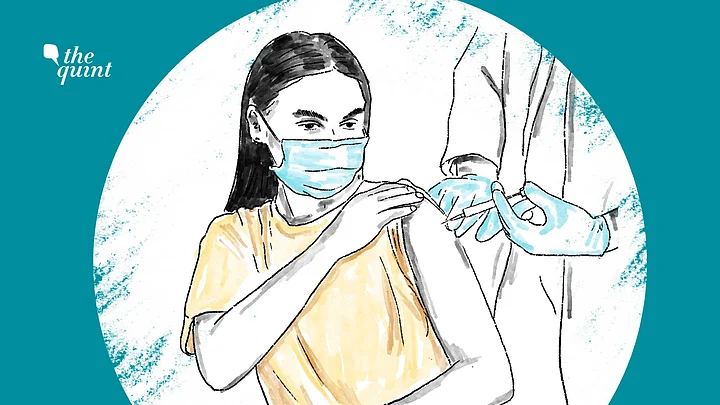After Prime Minister Narendra Modi announced the change in the vaccine policy on 7 June, completely centralising the process of procurement of doses from 21 June, the Centre on Tuesday released the revised guidelines for the same.
According to the new guidelines, 75 percent of the doses manufactured will be procured by the Centre and will be given to the states for free. They will be administered to all above 18 years of age for free.
The remaining 25 percent of the doses can be sold to private hospitals, which can administer those doses to the citizens at a price, with an additional service charge of not more than Rs 150.
Here are some key highlights of the revised guidelines:
What is the order of priority for vaccination?
With respect to the vaccine doses provided free of cost by the Government of India (GoI) to the states, vaccination will be prioritised in the following manner:
- Healthcare Workers
- Frontline Workers
- Citizens more than 45 years of age
- Citizens whose second dose is due
- Citizens 18 years and above
States/UTs may decide their own prioritisation, factoring in the vaccine supply schedule.
Can I register at vaccination centres?
Not at the moment. Along with registrations on CoWIN, all government and private vaccination centres would also provide an on-site registration facility, available both for individuals as well as groups of individuals.
However, a detailed procedure is yet to be finalised and published by states/UTs, in order to minimise any inconvenience to citizens. Watch out this space for more updates.
How will the Centre decide on vaccine distribution for states?
Vaccine doses provided free of cost by the Centre will be allocated to states/UTs based on criteria, such as population, disease burden, and the progress of vaccination.
Wastage of vaccine will affect the allocation negatively.
Does this mean private hospitals will no longer vaccinate people?
Domestic vaccine manufacturers are given the option to also provide 25 percent of their monthly production of vaccines directly to private hospitals. The central government will facilitate supply of these vaccines to the private hospitals and their payment through the National Health Authority’s electronic platform.
Will vaccines be free in private hospitals as well?
No, the price of vaccine doses for private hospitals would be declared by each vaccine manufacturer, and any subsequent changes would be notified in advance. The private hospitals may charge up to a maximum of Rs 150 per dose as service charges.
All citizens, irrespective of their income status, are entitled to free vaccination. Those who have the ability to pay are encouraged to use private hospitals’ vaccination centres, GoI said in its policy.
What is the e-voucher mentioned in the new policy?
To promote the spirit of “Lok Kalyan”, the use of non-transferable Electronic Vouchers, which can be redeemed at private vaccination centres, will be encouraged. This would enable people to financially support vaccination of Economically Weaker Sections (EWS) at private vaccination centres.
